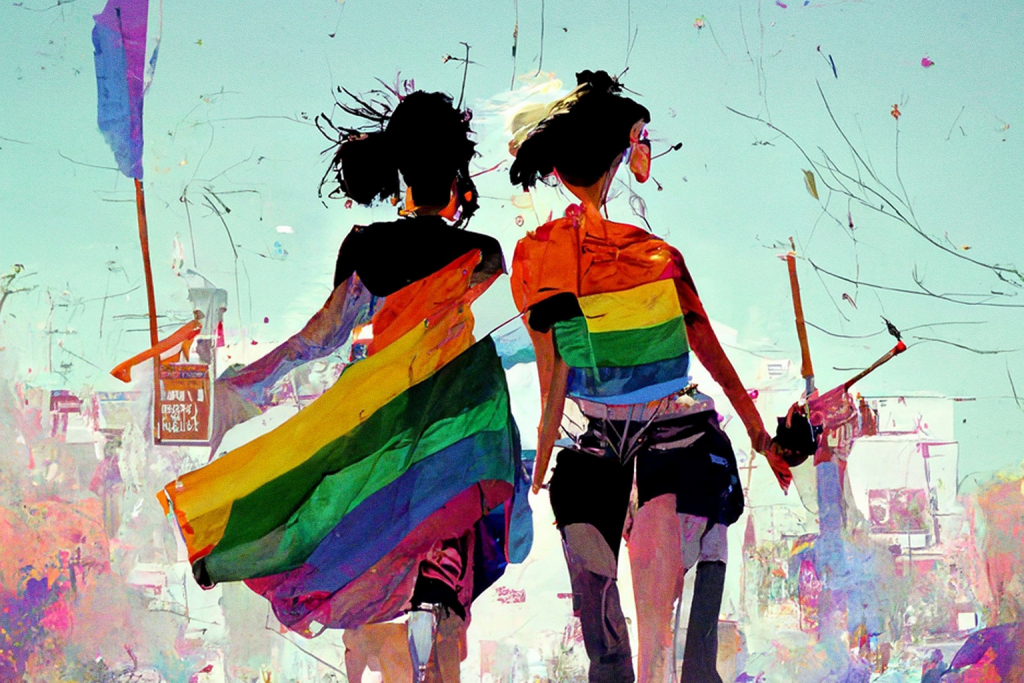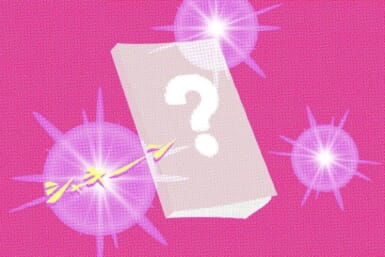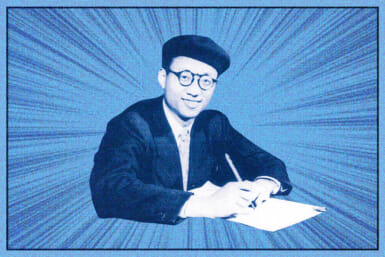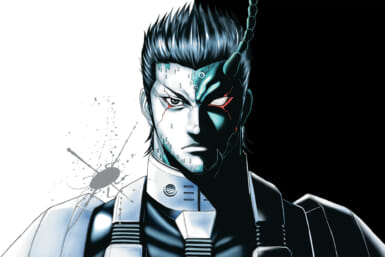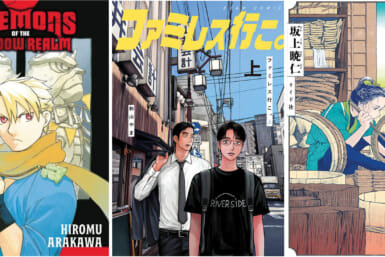Queer stories have always had a place in Japanese literature, and the last decade in particular has seen a boom in media representation. Starting in the 1970s, manga artists began openly depicting gender nonconformity and same-sex relationships in works such as The Rose of Versailles and The Heart of Thomas. Far from being edgy or underground, these manga were published in commercial magazines and enjoyed mainstream success. Taking influence from the writing of Mari Mori and Nobuko Yoshiya, artists like Riyoko Ikeda and Keiko Takemiya paved the way for more contemporary genres.
Today, most manga readers are familiar with categories such as boys’ love, which packages homoerotic relationships between men for a predominantly female audience, and yuri, a broader genre focused on romantic and sexual intimacy between women. Although progressive for their time, these genres have been criticized for failing to explore the realities of living life as a queer person and are often geared towards facilitating escapist fantasies more than anything. The increased participation of queer artists in the manga industry has helped break this mold, giving birth to a new generation of realistic and complex works with strong queer themes.
These seven manga are perfect for those looking to dive into this new wave and support the queer storytellers of Japan.
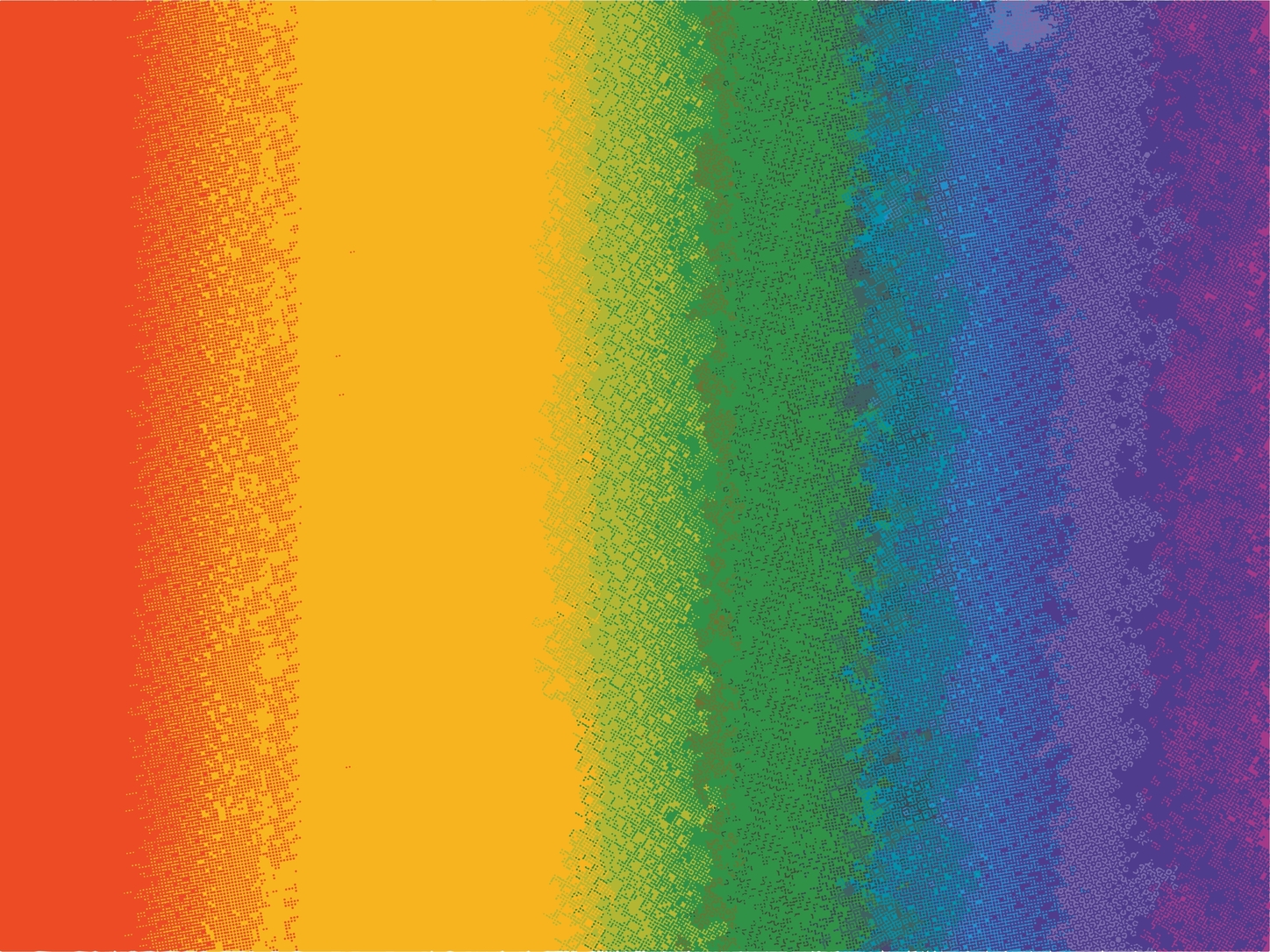
1. Our Dreams at Dusk by Yuhki Kamatani (Translated by Jocelyne Allen)
2015–2018, 4 Volumes
After moving to rural Hiroshima, Tasuku is outed at school and contemplating suicide, when a chance encounter with the mysterious “Someone” changes his mind. Someone introduces Tasuku to the diverse group of queer individuals living in their community, helping him take his first shaky steps towards self-acceptance.
Author Yuhki Kamatani is openly asexual and X-gender (a Japanese term similar to “non-binary”) and based this manga on their past struggles with their own identity. Their hypnotic art and stunning visual metaphors further elevate this realistic and compelling portrayal of the everyday lives of queer people in contemporary Japan.
2. My Lesbian Experience with Loneliness by Kabi Nagata (Translated by Jocelyne Allen)
2016, 1 Volume
Few autobiographical manga are as brutally honest as My Lesbian Experience with Loneliness. In her first long-form serialization, Kabi Nagata takes a no holds barred look at her lifelong struggle with mental health, her sexual awakening and her decision to lose her virginity to a female sex worker. In doing so, she bucks the trend of objectifying lesbian relationships for straight male audiences by sharing her lived experiences in all their emotional complexities. Fans of graphic novel memoirs like Alison Bechdel’s Fun Home: A Family Tragicomic should give this one a shot.
3. The Bride Was a Boy by Chii (Translated by Beni Axia Conrad)
2016, 1 Volume
Educational and entertaining, the essay manga The Bride Was A Boy follows the author, a transgender woman, through the ups and downs of her medical and legal transition. Although Chii keeps the tone light and sweet, she shows readers how many obstacles transgender people face when seeking equal treatment in society. Chii herself was legally prohibited from marrying her cisgender husband until she had completed her gender affirmation surgery.
Some of the terms that Chii uses may differ from those used in other communities, but her informative explanations make this manga a great starting point for readers looking to educate themselves on transgender rights in Japan.
4. Boys Run the Riot by Keito Gaku (Translated by Leo McDonagh)
2020, 4 Volumes
As a closeted transgender man, high school student Ryo lives under the strain of presenting as a woman day-to-day and is forced to wear a girls’ uniform. His only respite from this daily dose of dysphoria is his hobby: men’s street fashion. He launches his own brand to push the boundaries of gendered clothing.
Author Keito Gaku is a transgender man himself, bringing a personal touch to this triumphant story. The English edition was translated, edited and lettered by a team of transgender and non-binary people hired by Kodansha USA, a great example of material allyship on the part of a major Japanese publisher.
5. My Brother’s Husband by Gengoroh Tagame (Translated by Anne Ishii)
2014-2017, 4 Volumes
Best known for his more erotic works (investigate at your own risk), Gengoroh Tagame makes his first foray into all-ages manga with My Brother’s Husband. When single father Yaichi meets Mike, his late brother’s Canadian husband, he struggles to overcome their linguistic and cultural differences. However, as Mike bonds with his young daughter Kana, Yaichi is forced to examine the damage done by his own subconscious prejudices. Tagame illustrates the subtle microaggressions that queer people routinely face with incredible insight and skill, shedding light on the less visible aspects of homophobia in contemporary Japanese society.
6. Wandering Son by Takako Shimura (Translated by Rachel Matt Thorn)
2002–2013, 15 Volumes
Wandering Son begins with two fifth-graders, Shuichi and Yoshino, bonding over their growing discomfort with their assigned genders. Takako Shimura, also known for her lesbian manga Sweet Blue Flowers, brings us along for the ride as they experience the frustration, heartbreak and joy of finding themselves. Her delicate art and deliberate pacing underscore the sensitivity with which she treats her characters. Wandering Son is also the only series on this list to have received an anime adaptation, produced by AIC Classic in 2011 for Fuji TV.
7. I Think Our Son Is Gay by Okura (Translated by Leo McDonagh)
2019–Present, 4 Volumes
Not ready to come out as gay, high school student Hiroki must deal with his father’s outdated attitudes towards homosexuality and his burgeoning crush on his classmate Daigo. In an interesting twist, however, this manga’s protagonist is actually his mother, Tomoko. Realizing that Hiroki is gay, she silently cheers him on as she waits for him to tell her on his own terms. Free from the typical coming-of-age angst, this manga is a feel-good read. Hiroki is instantly endearing and many queer people who have tried to hide their true selves from their families will relate to his situation.

